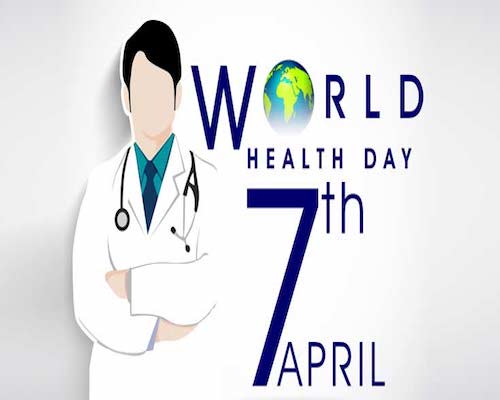healthysoch
New Delhi, April 07, 2019 :
Universal health coverage (UHC) means that all individuals and communities receive the health services they need without suffering financial hardship. It includes the full spectrum of essential, quality health services, from health promotion to prevention, treatment, rehabilitation, and palliative care. However, UHC does not mean free coverage for all possible health interventions, regardless of the cost, as no country can provide all services free of charge on a sustainable basis.
UHC enables everyone to access the services that address the most significant causes of disease and death, and ensures that the quality of those services is good enough to improve the health of the people who receive them.
Key messages from the World Health Organization (WHO) for World Health Day 2019 are:
- Health is a human right; it’s time for health for all.
- We know universal health coverage is possible, let’s make it happen!
- At least half of the people in the world do not receive the health services they need.
- About 100 million people are pushed into extreme poverty each year because of out-of-pocket spending on health.
- But who are these people and how can we help them? To get a better picture of who is missing out, we need data that is broken down by gender, age, income, location, education and other factors that affect access to health services.
- Health is a human right; everyone should have the information and services they need to take care of their own health and the health of their families.
- Quality, accessible primary health care is the foundation for universal health coverage.
- Unsafe and low-quality health care ruins lives and costs the world trillions of dollars every year, we must do more to improve the quality and safety of health services globally.
- Primary health care should be the first level of contact with the health system, where individuals, families and communities receive most of their health care—from promotion and prevention to treatment, rehabilitation and palliative care—as close as possible to where they live and work.
- At its heart, primary health care is about caring for people and helping them improve their health or maintain their well-being, rather than just treating a single disease or condition.
- Primary health care covers the majority of your health needs throughout your life including services such as screening for health problems, vaccines, information on how to prevent disease, family planning, treatment for long- and short-term conditions, coordination with other levels of care, and rehabilitation.
- Primary health care is a cost-effective and equitable way of delivering health services and helping countries make progress towards universal health coverage.
- A health system with strong primary health care delivers better health outcomes, is cost-efficient and improves quality of care.
- Health workers have a crucial role to play educating patients on how to take care of their health, coordinating care and advocating for their patients’ needs to health facility managers and policy-makers.
- Primary health-care workers have a continuing and trusted relationship with their patients and know their health history; knowing the full picture helps improve their care and saves money.
- Primary health-care workers know the traditions, cultures and practices of their communities, making them indispensable during an outbreak or emergency.
- To make health for all a reality, we need: individuals and communities who have access to high quality health services so that they take care of their own health and the health of their families; skilled health workers providing quality, people-centred care; and policy-makers committed to investing in primary health care.
(Source: World Health Organization)
The author of this article is Dr KK Aggarwal , Padma Shri Awardee
healthy soch







